The Reformed Church in Hungary (RCH) and the Reformed Church in Transcarpathia (RCT) hosted representatives of the United Reformed Church (UK) (URC) and the Christian Church (Disciples of Christ) (DOC) in the United States and Canada. The representatives of URC and the DOC refugee, relief, and disaster ministry, Week of Compassion (WoC), visited the churches to conduct filming for their appeals, supporting relief efforts addressing the consequences of Russia’s invasion of Ukraine. The group visited several projects in Budapest, where the Hungarian Reformed Church Aid (HRCA) is involved, as well as sites across the Transcarpathia region facilitated by the RCT and its Diaconal Coordination Office (DCO).
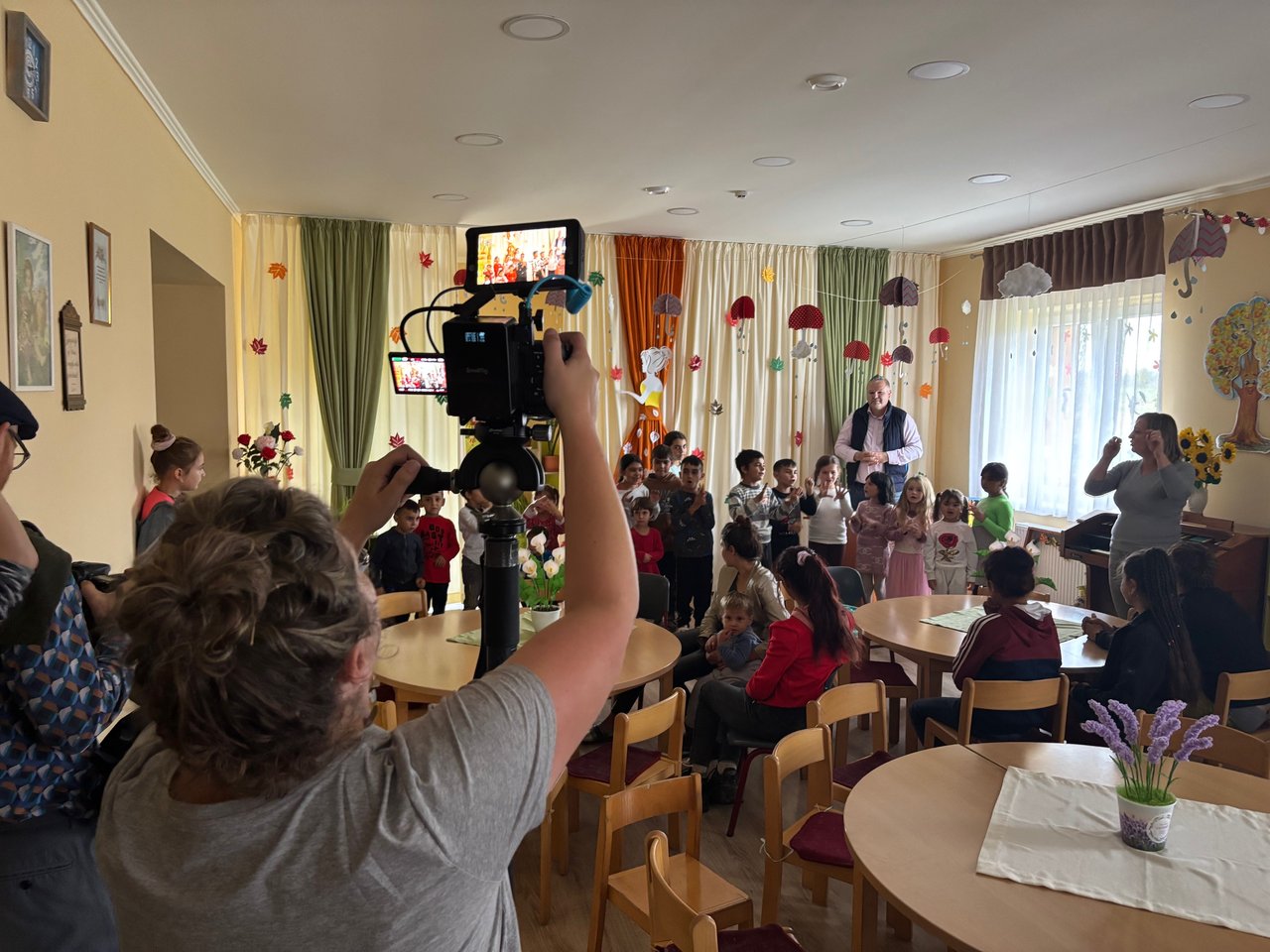
From October 3rd to the 7th, the international partners visited various projects in Budapest and Transcarpathia as part of their appeal efforts to raise money to support HRCA and RCT social projects focusing on refugee and host communities. Along these lines, the partners visited several survivor and community-led (sclr) response projects in Budapest and Transcarpathia, in addition to separate projects of the HRCA and RCT.
Sclr involves the distribution of microgrants to refugee communities or communities hosting refugees. The sclr program's goal is to realise community-led initiatives fostering durable integration, empowerment, sustainable social cohesion, and resilience building. The HRCA has been working with HEKS, ACT Alliance, Christian Aid, and other partners since 2023 to implement several different phases of the sclr program both in Transcarpathia and Hungary. Currently, the HRCA is in its fourth phase of sclr in Hungary with the support of HEKS and the Presbyterian Church (USA).
In Budapest, the partners started their visit at the Ukrainian Space, an after-school centre for Ukrainian children living in and around Budapest. The Ukrainian Space offers extra after-school programs for primary and secondary students, ranging from arts and crafts, Hungarian as a foreign language (HFL), mathematics, and others. During their visit, the WoC crew saw and participated in a cookie-decorating activity with the primary school students. After the crafts were packed up, as the group exited, HFL classes started for the younger primary students. As part of their sclr project, Ukrainian Space developed a multilingual book which includes plants found in Ukraine and Hungary. The book was developed as the students began to notice similarities between the plants in their new home, Budapest, and the homes they had to leave behind. The director of the Ukrainian Space, Vladimir Pukis, explained that the book was developed with drawings from the students themselves and in both Hungarian and Ukrainian as a way to reach across cultural divides.
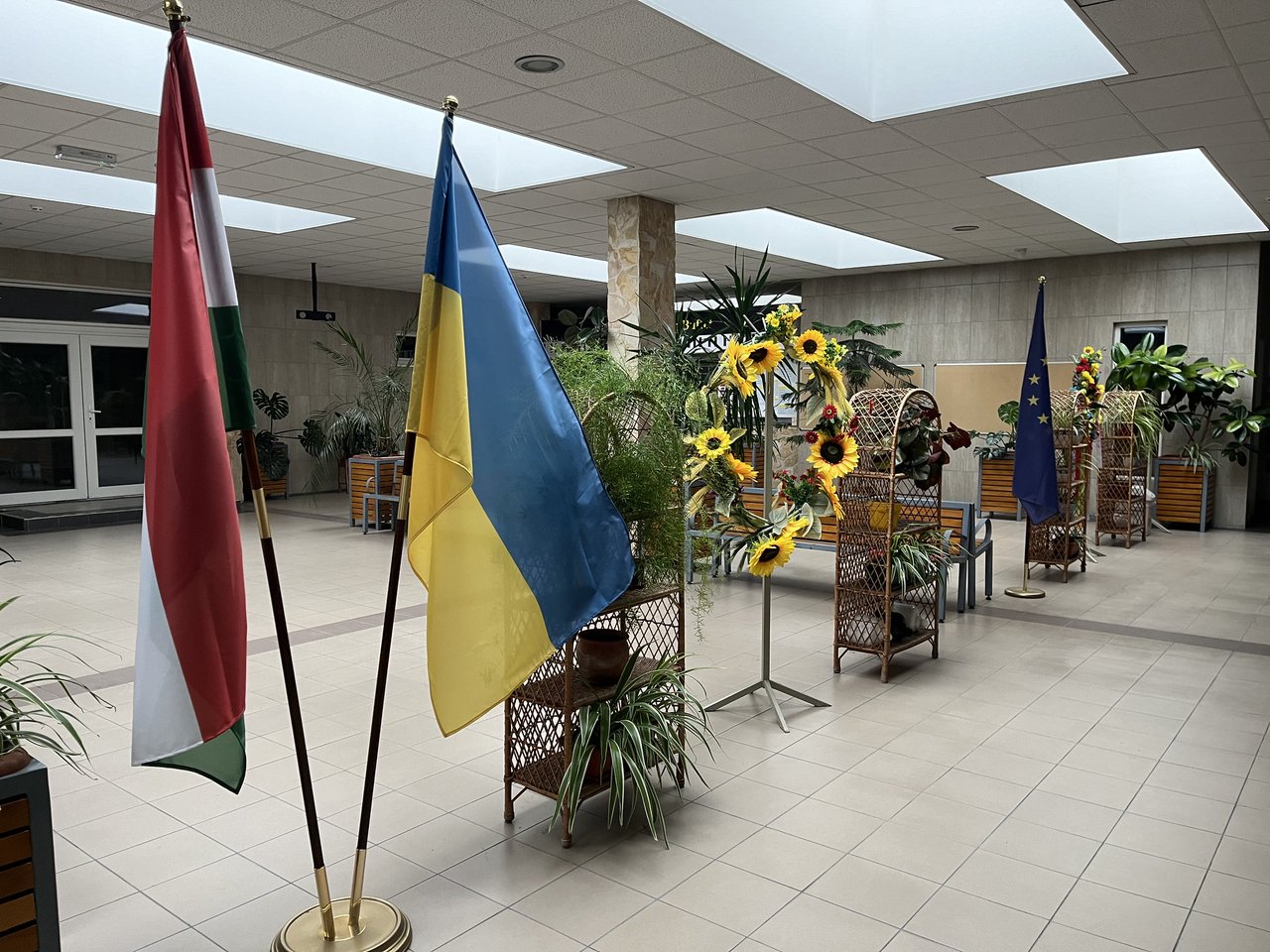
Also, in Budapest, the group visited the Hungarian-Ukrainian Bilingual Primary School and High School, which opened in September. The school is the first of its kind in Budapest and holds classes for grades one through twelve. Previously, the school applied for the sclr program to be able to purchase the proper materials for an educational space. One of the school’s directors explained the difficulty in finding and purchasing enough textbooks for students. Even now, there are maybe six books per classroom, the director estimated; many times, the teachers must photocopy the books instead of sending them home with the students.
The final Budapest location visited was the Refugee Ministry of the HRCA. Here the group met with the head of the Refugee Ministry, Kata Vereb, who explained the new projects the Refugee Ministry is implementing across the next several months. Following this discussion, the partners had the opportunity to sit in on a meeting of the Ukrainian Elder’s Club, who typically meet weekly either for activities at the Refugee Ministry or cultural programs in Budapest and its surrounding towns. The group is always excited to meet, and their gatherings are typically filled with mirth and conversation, this day was a day of particular celebration for the group.
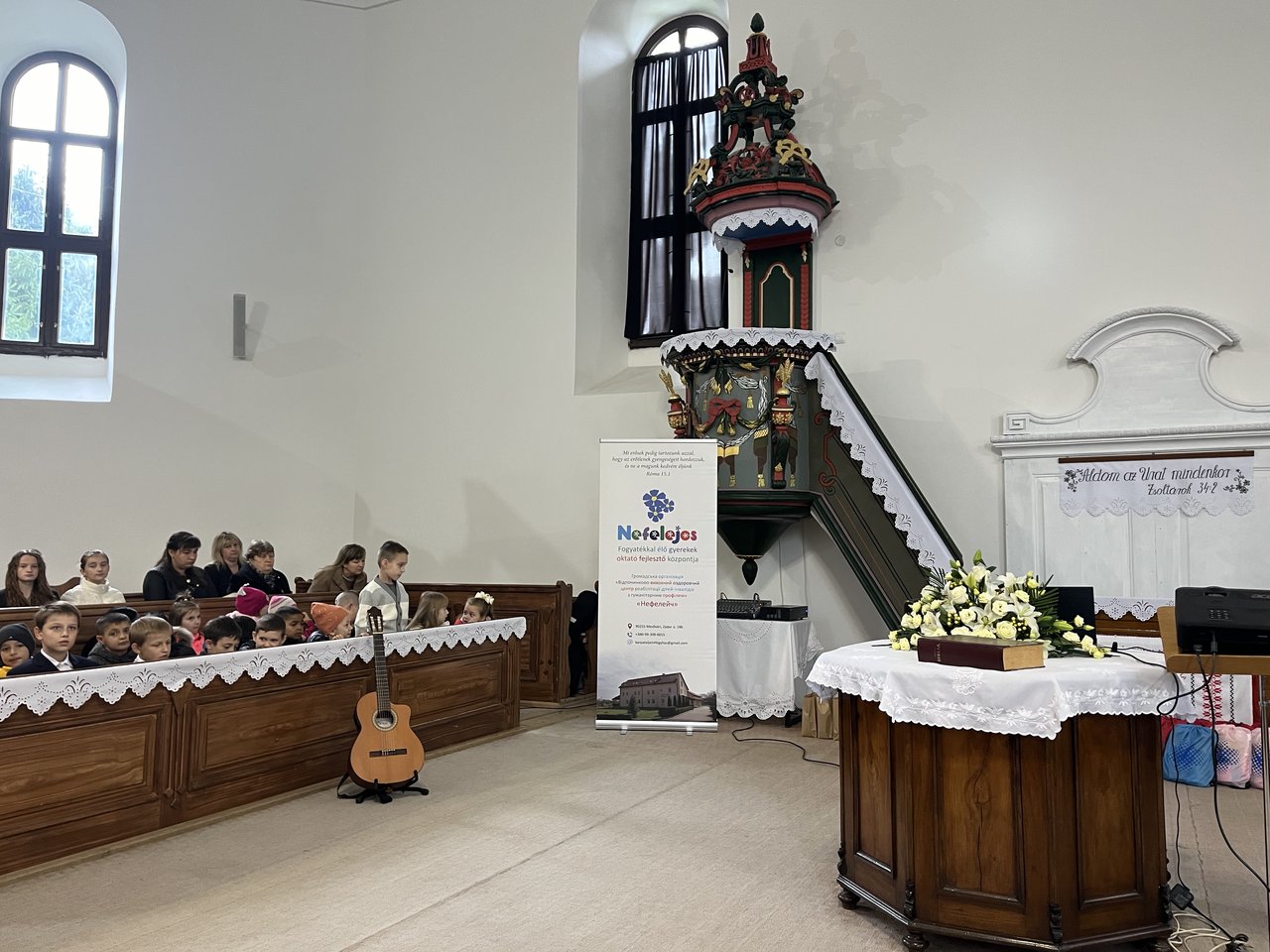
In Transcarpathia, the group began their visit in Beregszász with a tour of the agricultural project of the DCO, which raises various animals to feed and support the local community. Following this, there was a tour and presentation of the social kitchen and bakery at the DCO, which provides meals to 280 people in need in Beregszász every week. The next project visited was the Mandulafa, or “Almond Tree,” elderly rehabilitation home, a project which was launched in 2006. Here, the group was provided with a tour by the DCO director, Béla Nagy, and learned of the history of the rehabilitation home, including the additional Alzheimer’s treatment section on the property, which was established in 2009.
After the DCO, the partners went to Badállo to visit a local Roma kindergarten and after-school centre. Here, the group was welcomed with songs from the children and the community, and the children held a small arts and crafts session. Before returning to Beregszász, the group was welcomed at the home of a local community member. It was here that the WoC team wrapped up their visit and returned to Budapest.
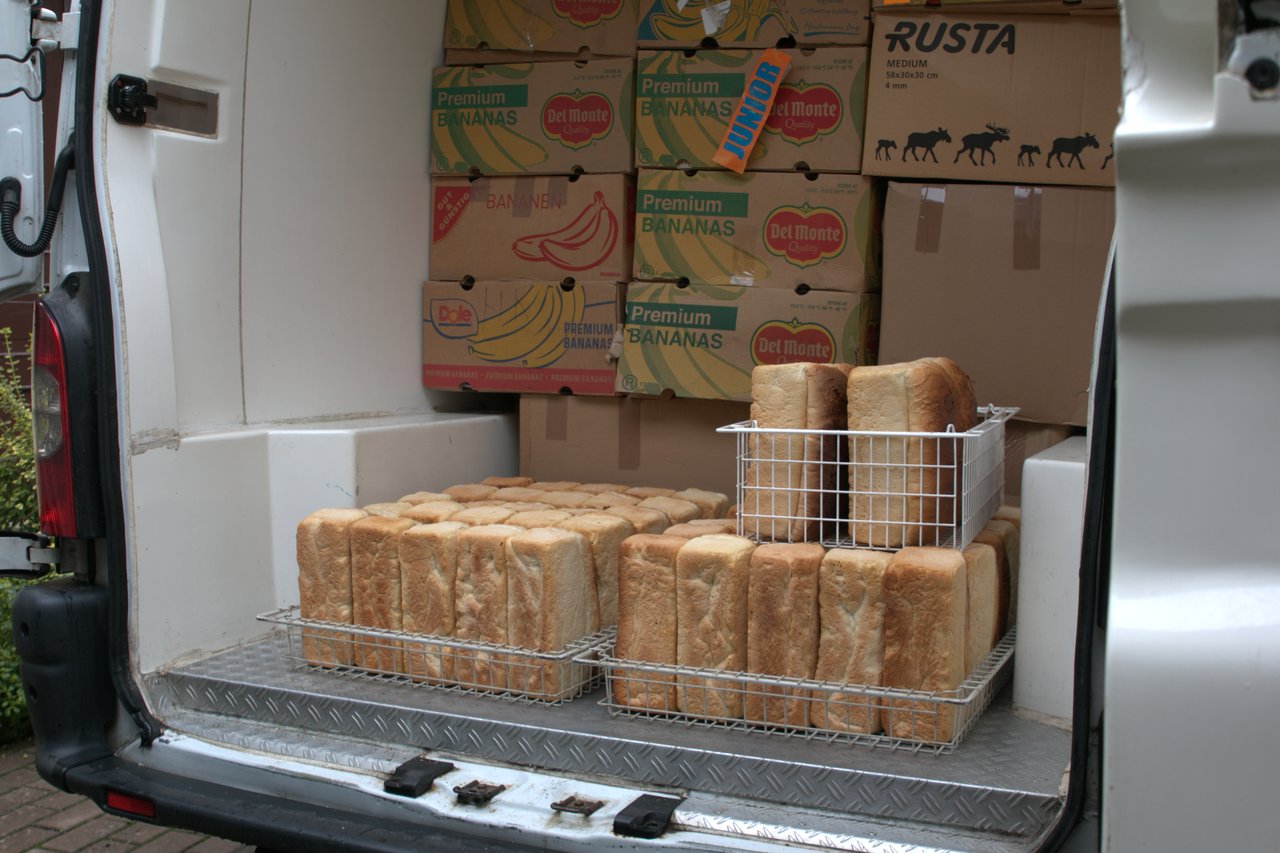
On Sunday, the group visited and participated in the worship service at a congregation in Mezővári. The service was special, celebrating the ten-year anniversary of the Nefelejcs (Forget-Me-Not) rehabilitation centre for children with disabilities. Students of the centre sang songs for the congregation, and a special video presentation demonstrated the centre's progress over the last ten years. In addition to celebrating Nefelejcs, the congregation also celebrated students beginning their new school year, distributing several back-to-school packages for the young students. This year, the RCT has been able to distribute over one thousand of these packages to young children entering school. The pastor of the Mezővári congregation said that the children of the community are important to its future, that so many students are beginning school is a sign of hope.
Following the worship in Mezővári, the group travelled to Verbőc to join an afternoon worship and special ceremony. The ceremony celebrated the return of a legal book to the community of Verbőc, and several representatives from the Hungarian consulate in Beregszász also attended. The text, called the Tripartitum or “Customary Law of the Renowned Kingdom of Hungary in Three Parts,” is a collection of legal texts written by a man, Werbőczy, originally from Verbőc. The text was initially compiled in 1517, and the book gifted to the community is from the 18th century. A smaller gathering followed the worship service to commemorate the event and the guests attending. Before departing, the group received a tour of the social kitchen of the Verbőc congregation, which has received two different sclr grants to expand its capacities.
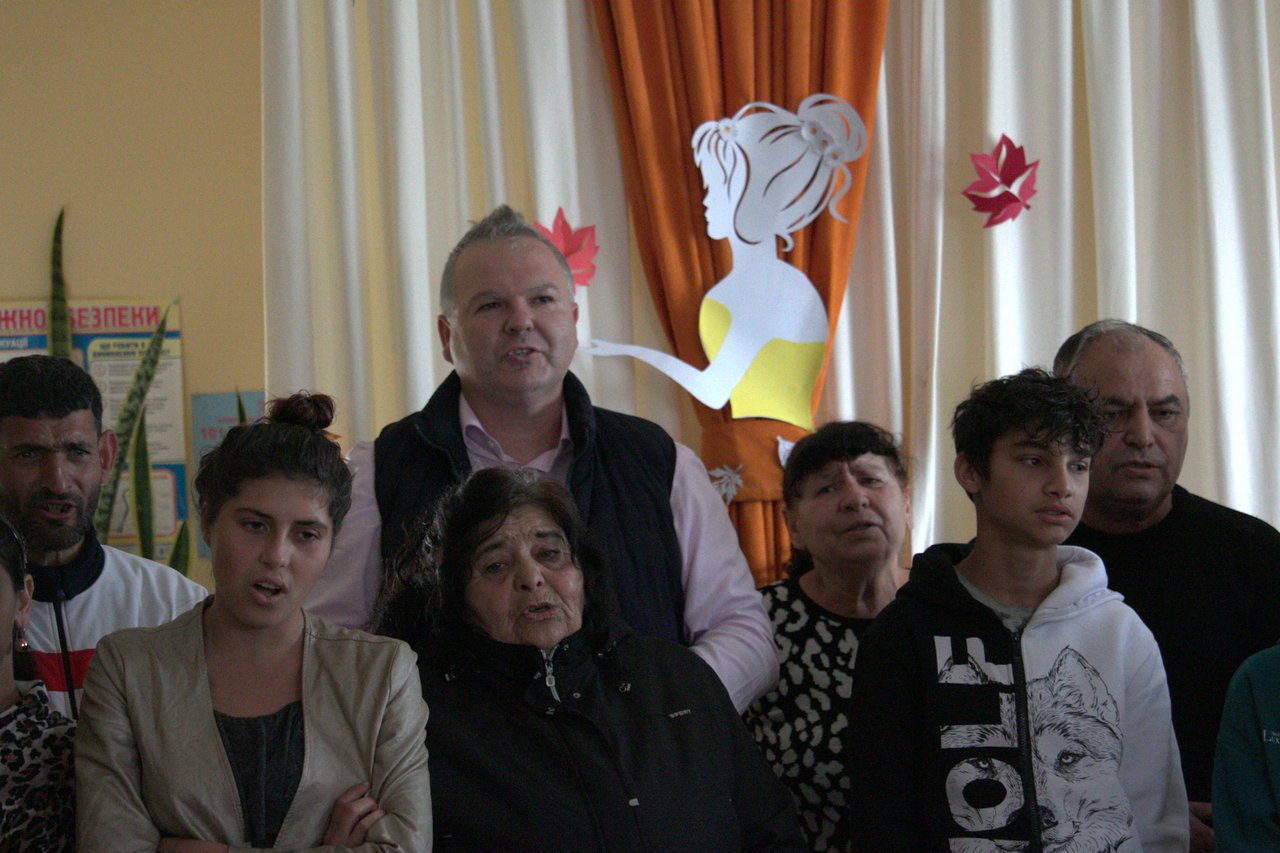
Before returning to Budapest, the group received a tour of the Nefelejcs (Forget-Me-Not) rehabilitation centre from Bishop Zán-Fábián. Here, the bishop explained the different types of therapy, activities, and classes the centre offers, as well as how the grounds have changed over the years as the centre has grown.
The United Reformed Church (UK) will commence its Ukraine appeal later this year, and the Week of Compassion Special Offering will commence in February 2025; both organisations will feature their videos and the information collected during their time in Budapest and Transcarpathia.